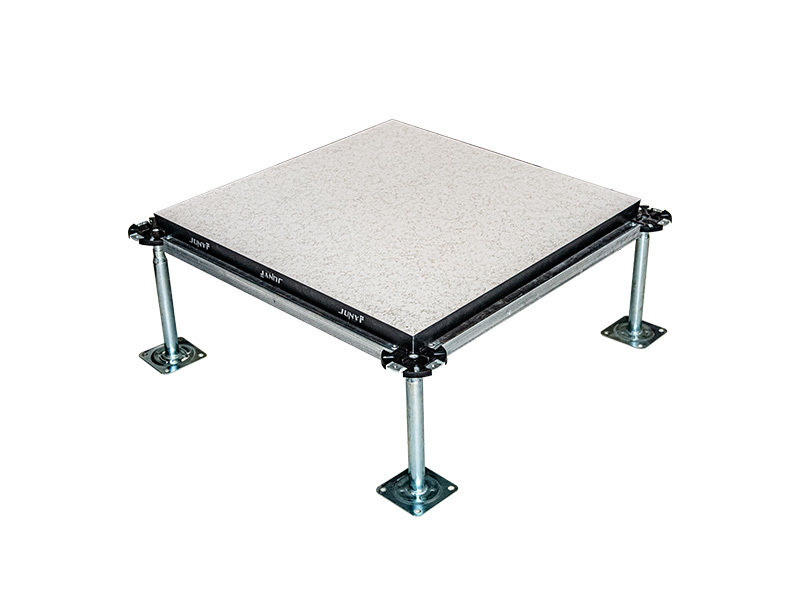Understanding Calcium Sulphate Raised Access Floors: Benefits and Applications
Calcium sulphate raised access floors have gained popularity in various construction and decoration projects due to their unique properties and advantages. These floors consist of a network of panels supported by a grid of pedestals, allowing for easy access to the space beneath. This feature is particularly valuable in environments where ongoing maintenance, cabling, or utilities are a priority.
2025年09月17日
Calcium sulphate raised access floors have gained popularity in various construction and decoration projects due to their unique properties and advantages. These floors consist of a network of panels supported by a grid of pedestals, allowing for easy access to the space beneath. This feature is particularly valuable in environments where ongoing maintenance, cabling, or utilities are a priority.
One of the primary benefits of calcium sulphate raised access floors is their outstanding load-bearing capacity. Typically composed of calcium sulphate core material enclosed in a steel or mineral-based casing, these panels can support heavy equipment and furniture without compromising structural integrity. This makes them an ideal choice for office spaces, data centers, and commercial buildings where durability and strength are essential.
Another significant advantage is the inherent fire resistance of calcium sulphate. Due to its mineral composition, this type of flooring does not contribute to the spread of flames, providing an added layer of safety in case of emergencies. In addition, these floors often have excellent acoustic performance, helping to reduce noise levels in busy environments and contributing to a more comfortable atmosphere.
Installation of calcium sulphate raised access floors is relatively straightforward. The modular design allows for quick assembly and disassembly, making it easier to adapt the layout to changing needs. This flexibility is beneficial in dynamic workplaces and environments undergoing regular alterations. Furthermore, the space beneath the panels offers a convenient area for routing electrical cabling, plumbing, and HVAC systems, which can lead to a more organized and efficient workspace.
Maintenance of calcium sulphate raised access floors is minimal, making them a practical choice for busy environments. Routine cleaning and occasional inspections are typically all that is required to keep these floors in excellent condition. Additionally, they are resistant to moisture and staining, making them suitable for areas where spills or humidity may be a concern.
Sustainability is also a consideration with calcium sulphate raised access floors. Many of these products are manufactured using environmentally friendly processes and materials, making them a responsible choice for eco-conscious projects. As the industry shifts towards greener building practices, incorporating sustainable materials can enhance a project’s overall environmental impact.
In conclusion, calcium sulphate raised access floors offer a range of benefits, including strength, fire resistance, ease of installation, and minimal maintenance requirements. Their adaptability makes them suitable for a variety of applications, from commercial offices to technical facilities. By understanding the advantages of this flooring solution, you can make informed decisions for your construction and decoration projects, ensuring a balance of functionality and aesthetic appeal.
One of the primary benefits of calcium sulphate raised access floors is their outstanding load-bearing capacity. Typically composed of calcium sulphate core material enclosed in a steel or mineral-based casing, these panels can support heavy equipment and furniture without compromising structural integrity. This makes them an ideal choice for office spaces, data centers, and commercial buildings where durability and strength are essential.
Another significant advantage is the inherent fire resistance of calcium sulphate. Due to its mineral composition, this type of flooring does not contribute to the spread of flames, providing an added layer of safety in case of emergencies. In addition, these floors often have excellent acoustic performance, helping to reduce noise levels in busy environments and contributing to a more comfortable atmosphere.
Installation of calcium sulphate raised access floors is relatively straightforward. The modular design allows for quick assembly and disassembly, making it easier to adapt the layout to changing needs. This flexibility is beneficial in dynamic workplaces and environments undergoing regular alterations. Furthermore, the space beneath the panels offers a convenient area for routing electrical cabling, plumbing, and HVAC systems, which can lead to a more organized and efficient workspace.
Maintenance of calcium sulphate raised access floors is minimal, making them a practical choice for busy environments. Routine cleaning and occasional inspections are typically all that is required to keep these floors in excellent condition. Additionally, they are resistant to moisture and staining, making them suitable for areas where spills or humidity may be a concern.
Sustainability is also a consideration with calcium sulphate raised access floors. Many of these products are manufactured using environmentally friendly processes and materials, making them a responsible choice for eco-conscious projects. As the industry shifts towards greener building practices, incorporating sustainable materials can enhance a project’s overall environmental impact.
In conclusion, calcium sulphate raised access floors offer a range of benefits, including strength, fire resistance, ease of installation, and minimal maintenance requirements. Their adaptability makes them suitable for a variety of applications, from commercial offices to technical facilities. By understanding the advantages of this flooring solution, you can make informed decisions for your construction and decoration projects, ensuring a balance of functionality and aesthetic appeal.


